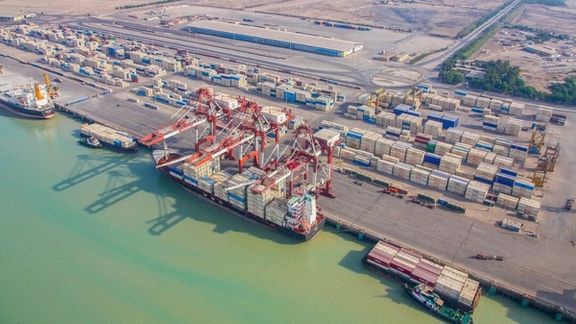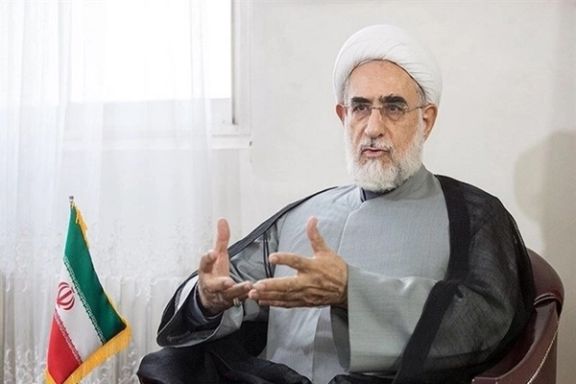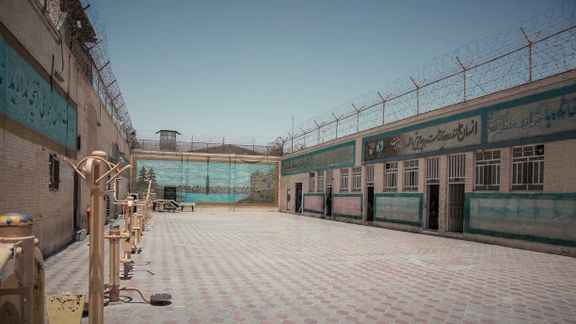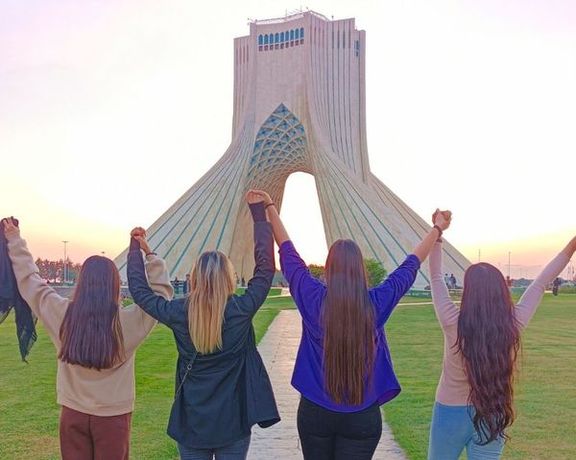International Financial Watchdog Keeps Iran On Its Blacklist

The Financial Action Task Force (FATF) kept Iran on its blacklist along with North Korea this week after Tehran took no action to comply with global regulations.

The Financial Action Task Force (FATF) kept Iran on its blacklist along with North Korea this week after Tehran took no action to comply with global regulations.
The move by the Financial Action Task Force will further isolate the Islamic Republic from international financial markets and banking system.
“In June 2016, Iran committed to address its strategic deficiencies. Iran’s action plan expired in January 2018. In February 2020, the FATF noted Iran had not completed the action plan,” said the watchdog in a statement.
In October 2019, the FATF called upon its members and urged all jurisdictions to require increased supervisory examination for financial institutions based in Iran; introduce enhanced reporting of financial transactions.
“Now, given Iran’s failure to enact the Palermo and Terrorist Financing Conventions in line with the FATF Standards, the FATF fully lifts the suspension of counter-measures and calls on its members and urges all jurisdictions to apply effective counter-measures,” the group’s 39 members said in a statement after a week-long plenary session.
Iran’s previous government submitted legislation to parliament in 2017 to adopt laws to implement FATF’s standards, but the hardliners have since prevented the final approval of the laws.
Opponents argue that if Iran accedes to FATF demands it will not be able to provide financial help to allied groups in the region that are part of Tehran’s “axis of resistance”.
These groups, such as the Lebanese Hezbollah and some Palestinian militant organizations, are designated as terrorists by some countries and act as proxy forces to help the Islamic Republic spread its influence in other countries.

An Iranian transport official says ports all over the world must obtain permission from the US Office of Foreign Assets Control to host Iranian ships.
Masoud Daneshmand, member of the board of directors of the Center of Transport Institutions said Saturday that most of Iran's shipping vessels are sanctioned and as a result they are inactive.
“The Shipping Company of the Islamic Republic of Iran is under sanctions, and all ports must obtain permission from the US Treasury to accept Iranian ships. If a port does not receive permission from the OFAC, they will be subject to secondary sanctions,” noted Daneshmand.
He further added that some countries like India and South Africa have obtained licenses to accept the Iranian ships, but it should be noted that they cannot berth in all the ports.
In March, the United States imposed new sanctions on Iran-linked shipping and petrochemical companies, including two shipping firms based in China.
The sanctions also targeted 20 shipping vessels linked to firms in China, Vietnam and the United Arab Emirates, the Treasury Department's website showed.
The sanctions were issued under a 2018 US executive order that restored sanctions targeting Iran's oil, banking and transportation sectors.
In 2019, OFAC issued an advisory to alert persons around the world that are involved in shipping petroleum or petroleum products from Iran.
“These shipments create significant sanctions risk for entities and individuals in the shipping industry, including shipping companies, vessel owners, managers, operators, insurers, and financial institutions,” read the advisory.

Amid more news of government corruption and mismanagement, the secretary general of Iran’s Jomhouriat Party has called on President Ebrahim Raisi to step down.
In a speech at the latest congress of the party this week, reformist cleric Rassoul Montajabnia said that "corruption has never been so widespread in any of the previous governments in Iran."
He said Iranians are suffering as they are being tortured by the economic hardships the government of President Raisi has imposed on them.
Montajabnia who was speaking on Friday, further charged that Raisi administration officials cannot achieve anything in the negotiations with the West more than what the Rouhani administration had achieved. Nonetheless, he saw the talks as a positive development.
After restoring diplomatic ties with Saudi Arabia with China’s mediation, Iran is reportedly holding talks with the United States in Oman. "Negotiating is better than insisting on one side of the argument at any price," he said.
However, he added: "It is not good that members of the current government have adopted the diplomatic overtures of their predecessors but still call them traitors!"
He was referring to continuing attacks by hardliners against the Rouhani government for being too weak in their dealings with the West.

Meanwhile, Montajabnia criticized the government for the way it handled the restoration of ties with Saudi Arabia and said that the fact that a communist state had to mediate between Iran and another Muslim country was not consistent with Iran's dignity."
Montajabnia then lashed out at the government for ''serious and widespread administrative corruption in a government that came to power with the motto of fighting corruption." Referring to a recent case of financial corruption among state officials, Montajabnia said corruption has never been as widespread in Iran under any previous government."
He also criticized the Raisi administration officials for failing to stand by the promises they had made to the people, and leaving the nation helpless with a lot of financial problems. Referring to a recent case of bribery involving tens of lawmakers and at least one government ministry. He further charged that gangs and mafias have infiltrated various parts of the government and the parliament.
The former Governor of the Central Bank of Iran, Abdolnaser Hemmati, recently noted in an Instagram post that he had warned Raisi during the election campaigns in 2021 that the promises he was giving could not be met as there were no funds available." Hemmati also accused all other candidates of "promising the redistribution of poverty in Iran rather than creating wealth for the people."
Meanwhile, according to a Khabar Online report, Hemmati further charged that Raisi in his latest interview on state TV has concealed the fact that the inflation rate in Iran in May was over 60 percent. He added that Raisi declined to tell the nation about what happened to the promises he had made in 2021 to improve the country's economic situation. He further charged that the state television helped Raisi to conceal painful facts.
In another development, reformist commentator Abbas Abdi said those like Raisi and his economic aides who promised to bring down the inflation rate to a single-digit figure, even without resolving the nuclear issue, should now be held accountable for the country's current situation.
Abdi charged that following the restoration of ties with Saudi Arabia and reported contacts with the West, the Raisi administration appears to have realized the importance of nuclear negotiations for Iran's economy and foreign policy although it still finds it difficult to acknowledge that.

A human rights organization reported the beating of political prisoners in the central Iranian city of Yazd in an apparent fight staged to punish them..
Karun Human Rights Organization said the attack happened in Yazd Central Prison June 19, during which a number of prisoners were injured.
“The prison's medical facilities were insufficient to treat the injured, and some of the prisoners were transferred to Yazd City Hospital,” added the report.
Among the injured, Mohammad Haydari, 35, from Ahvaz, is known to be a political prisoner but there is no information about his health so far.
The Arab political activist, who was sentenced to 15 years in prison on the charge of moharebeh (War against God), was stabbed in the chest.
One of the prisoners who witnessed the conflict told Karun that more than 20 Afghan prisoners were also injured.
According to this report, another Arab political prisoner named Jafar Beit Abdollah, 33, who was sentenced to 16 years in prison on the charge of moharebeh was also injured on his arm.
Karun added that most of the Afghan prisoners and some political prisoners have been transferred to solitary confinement.
Yazd Central Prison is home to about three thousand prisoners, among them over one thousand foreign nationals held in the worst conditions.
Eleven political prisoners in Yazd live in inappropriate conditions and have to endure discrimination and insults from officials and targeted conflicts inside the prison staged to harass them.

The deputy judiciary chief of the Islamic Republic of Iran says it is the regime's right to tell women what to wear.
"Hijab is a religious and political obligation, and I am surprised by those who claim that the government should not interfere in this regard,” said Mohammad Mossadegh on Friday.
"If the hijab is not observed in the street, the government has the right to interfere," he claimed.
At the same time, Asadollah Jafari, Chief Justice of Esfahan Province announced that 1,200 cases have been filed against women who refused to wear the mandatory hijab.
He also accused those women who do not observe the mandatory hijab, of "promoting vice".
These statements come as Ahmad-Reza Radan, the Police Chief of the Islamic Republic of Iran, once again threatened women regarding their hijab earlier this month.
According to him, women who put photos and videos without hijab on social media, or people who encourage others to do this will be taken to court.
Iranian women began widespread defiance of forced hijab after popular protests broke out last year when Mahsa Amini, a young woman, was killed in 'morality police' custody after getting arrested for not fully following hijab rules.
Iranian women appearing in public without headscarves has become a common sight across the country. Celebrities keep publishing photos and videos of themselves defying the regime and images of scuffles with security forces are still seen across social media on a daily basis.
While some politicians have demanded an end to compulsory hijab and laws that legalize discrimination against women, there are many others who have been talking about new methods and punishments to enforce hijab.

The United States and three of its European allies have demanded an investigation by the United Nations over Russian use of Iranian drones against Ukraine.
In a session of the Security Council on Friday, Britain, France and Albania joined the US demanding an urgent investigation after months of mass Russia drone attacks by Iranian-made Shahed kamikaze drones against Ukrainian civilian and military targets.
What was most notable is that Linda Thomas-Greenfield, US ambassador to the United Nations, told the Security Council that the deployment of Iranian drones in a foreign war is a potential violation of Council’s 2015 resolution 2231. That resolution, which accompanies the JCPOA nuclear accord, banned certain Iranian weapons exports until October 2023.
“The United Nations must implement Security Council Resolution 2231. We still have no explanation as to why experts from the 2231 team have not been dispatched to Ukraine to review evidence of these weapons’ origins, and the destruction these weapons have caused. The UN must act with urgency. This is a matter of life or death for the Ukrainian people,” the US ambassador said in her address.
Russia was one of the signatories of the Obama-era nuclear agreement that aimed to restrict Iran’s nuclear program. Resolution 2231 by extension was to deny Iran the development of weapons systems that could be used in the delivery of nuclear weapons.

US, British and French warnings about the potential violation of Res. 2231 was first voiced in mid-October, when evidence and images emerged of Iranian drones shot down by Ukraine.
The Biden administration warned about Russian plans to acquire the drones as early as in July 2022. First mass deployment of the one-way killer drones emerged in early October.
Russia uses the Shahed Unmanned Aerial Vehicles (UAVs) for three purposes. First, is to use them to hit targets, but the drones fly slowly and are very noisy. Ukrainian forces have learned to shoot most of them down. But the Russian military has used dozens of Shahed’s in many attacks during missile barrages to overwhelm air defenses and allow the more expensive missiles to penetrate Ukraine’s anti-air shield.
The third purpose, according to some experts, is simply to force Ukraine to use the expensive and limited number of its Western-supplied anti-air missiles on the Iranian drones, which are much cheaper, estimated to cost around $20,000.
The United States and its allies have imposed rounds of sanction on individuals and entities involved in assisting Iran’s drone program and their delivery to Russia. Lately, concerns have increased over reports of Russia planning to build a plant to produce the Iranian drones.
They have also told Tehran that it should stop its expanding military cooperation with Russia if it wants an agreement over its nuclear program resulting in reduction of sanctions.
“We know the Kremlin has procured hundreds of UAVs and is now working with Iran to produce these weapons inside Russia. And we know that in recent weeks, the Kremlin has used these UAVs to destroy Ukrainian infrastructure and kill and terrorize civilians,” ambassador Thomas-Greenfield told the Security Council on Friday.